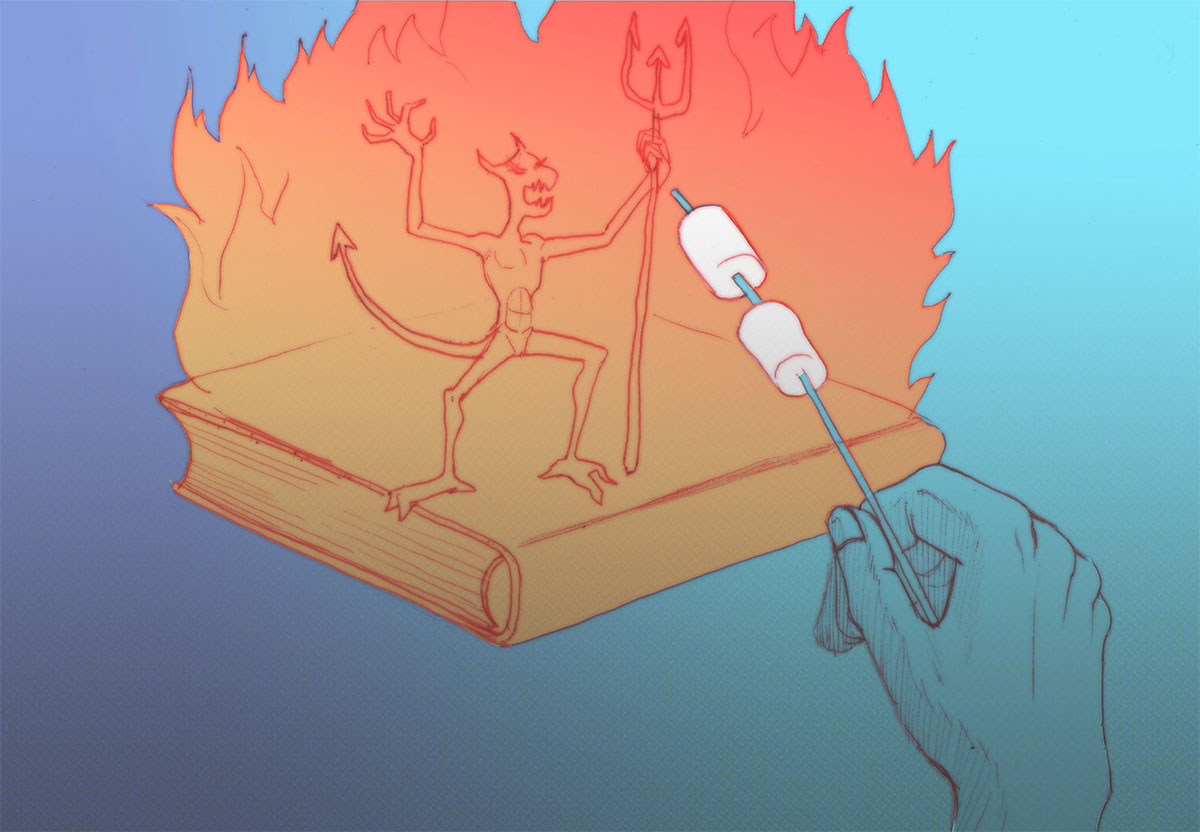
The World’s Foremost Classic Authors Who Died Poor (and What You Can Learn From Them)
H.P. Lovecraft. Edgar Allan Poe. Franz Kafka. Oscar Wilde. Zora Neale Hurston. Joseph Roth. Emily Dickinson. John Keats. Kate Chopin. Jack Kerouac. Henry David Thoreau. Herman Melville.
All of these authors have three things in common:
1) They all joined the pantheon of human literature.
2) They all lived a life of unrewarded hardships and most of them died poor and underappreciated.
3) They never stopped writing; regardless of what happened and how badly received their work happened to be at the time, and how deeply the rejection hurt them.
Can you imagine how poorer our modern world would be if those authors hadn’t persevered in trudging through their ideas until they eventually struck gold?
Aren’t you glad those authors never gave up on their creative aspirations and instead chose to keep refining their talents?
Now, let’s look at this from the reverse angle:
Can you consider how hard it must have been for those who put the full weight of their life forces into their literary works, never to have – in life – received adequate rewards or recognition?
Would you be willing to pay the same price of admission, if that’s what it takes to produce truly relevant work that stands the test of time?
Looking through the most exhilarating pieces of literature can be a sobering experience. There is typically a back door path trodden with hardships, which are inextricably intertwined to the accomplishments that eventually flourished out of them.
Creativity and suffering could be two sides of the same coin, and they could be proportionate sides.
As sobering as this insight can be, it doesn’t have to be depressing.
– Maybe you won’t have to withstand incommensurate trials for the sake of carving your name in the wall of the world’s literature, with letters large and bold enough for the entire world to see.
– Maybe you have reasonably modest ambitions and you can circumvent some of the hardest lessons, by effectively planning your journey and bracing yourself for what could be ahead.
– Maybe there is a comfortable middle ground that allows us to drink from the wisdom of the masters without necessarily enduring the same trials as them.
There are valuable lessons to be learned from the old masters of literature.
And the most valuable of all lessons, for anyone who writes, is arguably not to be found in the actual literary masterpieces left behind by legendary authors – but the sheer perseverance that allowed those works to eventually materialize.
Paramount to all those lessons: Never stop writing. Value your work. Keep on writing. Learn to enjoy the writing process, and your cumulative results will speak for themselves, attesting to a creative force worthy of recognition.
Keep writing. Keep living. Keep maturing.
Rinse and repeat, and make sure you thoroughly enjoy the process.
If there is a secret that has been handed down to us by all great writers, this is it.
But there are many subtler, yet equally valuable lessons that you will eventually have to integrate into your psyche, so you can keep maturing as a writer.
There are life lessons available from leading authors that will benefit your writing significantly.
This article will pick apart lessons gleaned from studying giants of the written words, and we’ll elaborate on those lessons, hoping to provide valuable insights.
Table of contents:
– Never stop writing.
– Be prepared to face hardships.
– Suffering as a prerequisite ingredient to success.
– You don’t have to struggle just for the sake of doing so.
– You do have to keep on writing and keep on living.
– Start thinking of your work as your legacy.
– Quit fretting over immediate results.
– Focus on the writing process.
– Never stop writing!
Never stop writing.
Hardships are an inevitable part of life, and they will inevitably happen, and you will stumble upon all kinds of challenges no matter what is your chosen path in life.
This principle applies to just about anyone. Your challenges will make or break you.
However, the world’s foremost writers did not become who they are merely because they endured a life of hardships.
After all… most people go through lives of hardships, never to reap any literary accomplishments from their efforts.
The world’s foremost writers became who they are because they chose writing as their coping mechanism to deal with their life of hardships.
So they kept on writing no matter what. It was impossible for them not to write.
These are people who went on their lives producing great works of literature and poetry, regardless of any external recognition and validation – and often they pushed forward in defiant spitefulness to their lack of reader’s approval.
They kept on producing their unacknowledged masterpieces that would never earn them as much as a compliment.
The key common element among all of the world’s foremost writers is they never stopped writing; no matter what.
The world’s foremost writers became who they are because they chose writing as their coping mechanism to deal with their life of hardships.
This is all that you have to do to be a writer: to keep on writing. But if you hope to add weight and substance to your work, you also have to keep on overcoming obstacles that add strength to your character.
You have to keep on failing and keep on picking yourself up, and on keep trying again – as many times as it takes.
You also have to be willing to face adversity in your life, no matter what form it may take.
To keep writing is essential, but to keep living is just as important. Ripeness is all, in life as in writing.
There is only one way to mature in life as in writing: by overcoming all obstacles with unlimited perseverance.
Be prepared to face hardships.
Life used to be rough, back in the day.
Writers really didn’t get enough credit. People back then couldn’t value talent or appreciate literature. There weren’t as many opportunities available as today.
… or so you may imagine, at first thought.
Truth is that things haven’t really changed that much.
Many people who turn to write are motivated by a burning passion when then come in.
The vast majority of people who give up on writing have had their spirit burnt down to embers.
Those who make it higher to a place of visibility or recognition are not immune to the same trials and tribulations as everyone else. They simply learned to keep rising from the ashes with renewed vigor.
Chances are they at some point began to enjoy the elation that is only available to those whose minds are irrevocably set on specific goals.
Even writers who went on to be massively successful later in their later lives typically went through proportionately hard times in their early lives.
Those who went on to become relevant authors were not immune to the same trials and tribulations as everyone else. They simply learned to keep rising from the ashes with renewed vigor. They used their words as stilts. They used their ideas as rocket fuel.
Charles Dickens is a notable example from the past. J. K. Rowling, a living, breathing example from our time. Both embody the quintessential rags-to-riches author archetype.
Many people know of their fame and accomplishments, but not as many people are aware of the struggles and disappointments that led to their groundbreaking works.
Case in point, you need to start valuing your hardships for the valuable learning opportunities they an offer you as an author. You also need to keep writing, if you think you have something valuable to say to the world.
Keep focused on what you want to achieve; look at everything that happens in your life – whether it’s success of lack thereof – as valuable opportunities for training and refinement, both at personal and literary levels.
You must be willing to fully experience your own existential pains, so you can eventually turn them into something beautiful that will touch other human hearts.
In life as in writing, you have to be willing to embrace your share of human suffering.
Suffering as a prerequisite ingredient to success.
To become a massively successful author is never a walk in the park.
It’s a stroll through hell; a cursed soul’s journey whose chances of redemption are close to none.
Granted, there are authors who chance upon success right off the bat – but more often than not, those will turn out to be the forgettable authors whose success is a function of their personal charm, rather than the strength of their ideas.
There are also authors who find success from their very first publishing venture, and they manage to renew it and build up to with each new work they release.
It’s tempting to accuse such authors of being lucky and talented, but you might be surprised that many of them could take offense at such allegations – because those who profess them will all too easily overlook the how real the struggle is; sheer work and unbreakable determination are just as important. And these things don’t happen naturally.
Books don’t just write themselves. Talent is always polished through practice.
Most of the truly timeless pieces of literary accomplishment are beautiful blossoms that erupted from the flower bed of manure in a life full of adversity.
Adversity is an inevitable part of life, no matter what you do for a living or where your real ambitions lay.
Books don’t just write themselves. Talent is always polished through practice.
It’s also worth noting that adversity doesn’t necessarily boil down to financial struggles. There are many well-known authors who came from affluent families and their lives weren’t necessarily easier.
Adversity manifests under many themes. For some authors its finances, for others its romance, yet others may find the biggest challenge is simply to stay focused.
Who can tell whether someone else’s hardships are heavier than their own? Does it even make sense to make such comparisons? It really doesn’t, and it’s useful to no one.
But it makes perfect sense to start looking at your own challenges and hardships that will inevitably arise in your life, as part of your custom made training that will allow you to surpass your current limitations. It’s all training for what’s ahead.
When you get into this mindset, you will find you may start welcoming challenges rather than worrying about them.
Regardless, it doesn’t mean you have to volunteer to suffer for the sake of doing so.
Leave it up to life itself to decide what your trials and tribulations are meant to be.
Leave it up to you to always make the best of what’s ahead, and always find a way to put it into writing.
You don’t have to struggle just for the sake of doing so.
If hardships make you stronger, and hardships are inextricable to life, does that mean you have to learn to actually enjoy suffering before you can achieve excellence in your field?
It doesn’t necessarily mean that. It does mean that life will keep testing you, and you will always have the option to put a literary spin on whatever challenges arise.
You too can use your writing as a coping mechanism.
This is probably the most important skill you can develop that will ensure you will eventually strike gold and produce a work that is truly relevant.
Developing this skill will also ensure you will never want to stop writing, and additionally, it will help you realize the worth of your writing and its value are two entirely different subjects.
The key to achieving excellence in any field is to put in the 10,000 hours that presumably culminate in mastery.
Life will keep testing you, and you will always have the option to put a literary spin on whatever challenges arise.
You too can use your writing as a coping mechanism.
To be able to make it through those 10,000 hours doesn’t imply eagerness to suffer. It does imply an eagerness to surpass one’s limitations by doing the work and withstanding the surrounding pressures.
To have a chance of arriving at mastery in any given field, you need to sort out your long-term ambitions from your short-term expectations, for your own sake – otherwise you’ll keep second-guessing yourself.
Because it’s quite possible your ambitions and expectations will not fully align in your lifetime, and it doesn’t have to keep you from doing your best work.
If fact, this can be valuable motivation to keep doing your best work without getting too bogged down by its impact, or lack thereof.
You do have to keep on writing and keep on living.
Writing is an essential practice that will allow you to craft compelling works. Living is an essential practice that will allow you to craft compelling writing.
In life as in writing – you may want to start taking the good with the bad, so you can start turning your past failures into the seeds of your future success.
Rather than seeking out hardships or shuddering away from them, we would like to encourage you to follow the middle road.
Start thinking of your life journey as the laboratory for your writing.
In life as in writing – you may want to start taking the good with the bad, so you can start turning your past failures into the seeds of your future success.
Brace yourself for whatever hardships may be between you and your creative ambitions, and make the best of them. It’s a process of learning and personal growth, all the way through to the writer’s last breath and final words.
Self-sacrifice on the literary altars is not the most fashionable road to literary master, but it could be the most truly effective.
Most writers who never do anything relevant with their writing all have something in common: they eventually gave up.
They were hoping to reap the crops before learning how to sow their fields.
They were unprepared to face all of the hardships in their writer’s journey.
Start thinking of your work as your legacy.
Think of any single book you have ever read. In fact, think of every single book that has already been published. Here’s the common denominator that is not entirely obvious, although it carries extremely valuable insight:
There was an author who never stopped writing until their work had been finished.
and
Maybe this is something valuable to keep in mind, next time you worry about whether it’s really worth your energy, time, patience, effort, money, blood, sweat and tears, to keep on writing.
Next time you find yourself looking for the motivation to write, try thinking that publishing a book is what happens what you don’t stop writing until the book is done; and then you don’t stop until you have found a way to put your work in front of its audience.
It’s not really about achieving something that will make things ahead easier for you. It’s really about leaving your legacy behind you.
Maybe that’s what it truly means to be a writer: to never stop writing. No. Matter. What.
There was an author who never stopped writing until their work had been finished.
You may have read their book, because they actually wrote it and sent it to print.
The elusive miracle of actually getting things done.
To keep writing is the one essential prerequisite to be a writer. But it’s not nearly enough unless you’re happy with being a literary martyr. Writing is alchemy. It’s growing through your life’s hardships and leaving a testament of your journey.
While it’s debatable whether a “true” writer must be willing to suffer for the sake of their literature, it’s very obvious that all lives come with challenges of their own.
It’s also obvious that many great writers will use their work both as the driving force behind their lives, not the other way around. The great authors all seem to think of writing as their mission on earth – they didn’t write to live; they lived to write.
They never stopped writing, no matter the hardships, disappointments, and grief they might have averted by choosing a more conventional career path.
Quit fretting over immediate results.
Maybe it’s time to learn how not to succumb to social pressure, and its typical admonition that “if it were meant to be… it would have happened by now”.
That kind of advice can be regarded as sensitive or it can be regarded as incredibly misleading, depending on how you look at it.
We would like to encourage every aspiring writer who comes across this article to not merely disregard such advice, but instead to take stock of its positive aspects while turning around its negatives.
Focus on what you can control: You can control your personal development if you keep embracing your life’s challenges. You can raise the bar on your writing if you keep writing. You can produce work that will make you proud if you keep focused on doing the work. This is arguably the best course of action.
Yes, the publishing industry is in a poor state right now. Yes, the competition is fiercer than ever among writers. But also yes, there are a thousand ways to the top of the mountain.
There are more possibilities available than ever before, to those who are simply contented to generate some income from their writing – not necessarily make a living from it, nor to become shining beacons of literary accomplishment.
Maybe you won’t even want to get close to the top of the mountain, and you’ll simply enjoy building a little cottage for the holidays somewhere along the way to the top.
Maybe it’s better for you to focus on what you want to do with your words, and where you want to go with your writing. So you can keep your writer’s journey, one step at a time.
Simply put, focus on what you can control.
You can control your personal development if you keep embracing your life’s challenges. You can raise the bar on your writing if you keep writing. You can produce work that will make you proud if you keep focused in doing the work. This is arguably the best course of action.
It’s always worth to keep writing if you identify as a writer; ideally, you should get into a frame of mind where you can write for the sake of writing.
Focus on the writing process.
You will benefit tremendously from re-framing your perspective and your methods in a way that works for you, rather than against you.
After all, there’s likely an ample supply of valuable hardships outside of you, which you can work through and learn from.
There’s no point in adding inner struggles to the mix, is there?
You will be best served by focusing on writing as something you simply enjoy doing, rather than something you expect to get specific results from.
Obsessing over the results of your writing is guaranteed to kill the same vitality that you absolutely need to produce memorable writing.
You need to be able to withstand absolute failure without as much as a genuinely curious, but ultimately dispassionate blink. Learn how to turn all failure to your benefit.
Failure is just a learning experience. It’s part of the writing process.
You need to be willing to take the good with the bad, in life as in writing.
You will be best served by focusing on writing as something you simply enjoy doing, rather than something you expect to get specific results from.
Unless you’re committed to allowing your necessary suffering to degenerate into pointless creative masochism, you may want to find a healthy compromise between what you want to say and what your readers want to hear.
It’s in keeping that fine balance that many contemporary authors seem to find their own grounds of respite and opportunity.
You must be willing to look at all your struggles as your personal road to success – which is ultimately something that you alone can decide what it is, and what you’re willing to do to stay on track. (cue link to next article)
In the meanwhile, there’s a fundamental take-away that hopefully you will turn into your talisman:
Never stop writing!
It’s time to compartmentalize the worth of your writing from the amount of money they have been able to make from your writing, up until now.
There are two absolutely unrelated matters that we all creative types tend to mix-up, much to our disadvantage.
It’s also time to realize that human suffering – individual as collective – is the manure from which the most beautiful literary flowers will flourish.
Regardless, it should also be noted that masochism is not a pre-requisite to become a strong writer.
You will have to be willing trudge through the proverbial manure for its fertile properties, but you won’t have to wallow in it.
It’s time to compartmentalize the worth of your writing from the amount of money they have been able to make from your writing, up until now.
There are two absolutely unrelated matters that we all creative types tend to mix-up, much to our disadvantage.
Life itself will be in charge of handing down the most relevant challenges for your particular story.
Accept suffering as a prerequisite to creative work; tension builds muscle.
Accept whatever hardships may be part of your life, for it is those hardships that will make you – and your writing – stronger.
Don’t settle with being a literary martyr. In this day and age, writers don’t necessarily have to suffer for the art or starve for the lack of opportunities, since we have many options available – and earnings can be made, provided a bit of entrepreneurial skills and practicality.
There are infinite roads leading to the top of this mountain (cue link to next article).
You are free to carve your own path to the height that suits you best, but you need to keep on walking.
There will be hardships ahead that you will best regard as training opportunities.
There will be many ways to reach a summit that makes sense to you – if only you stay on track, and – never – stop – writing.



